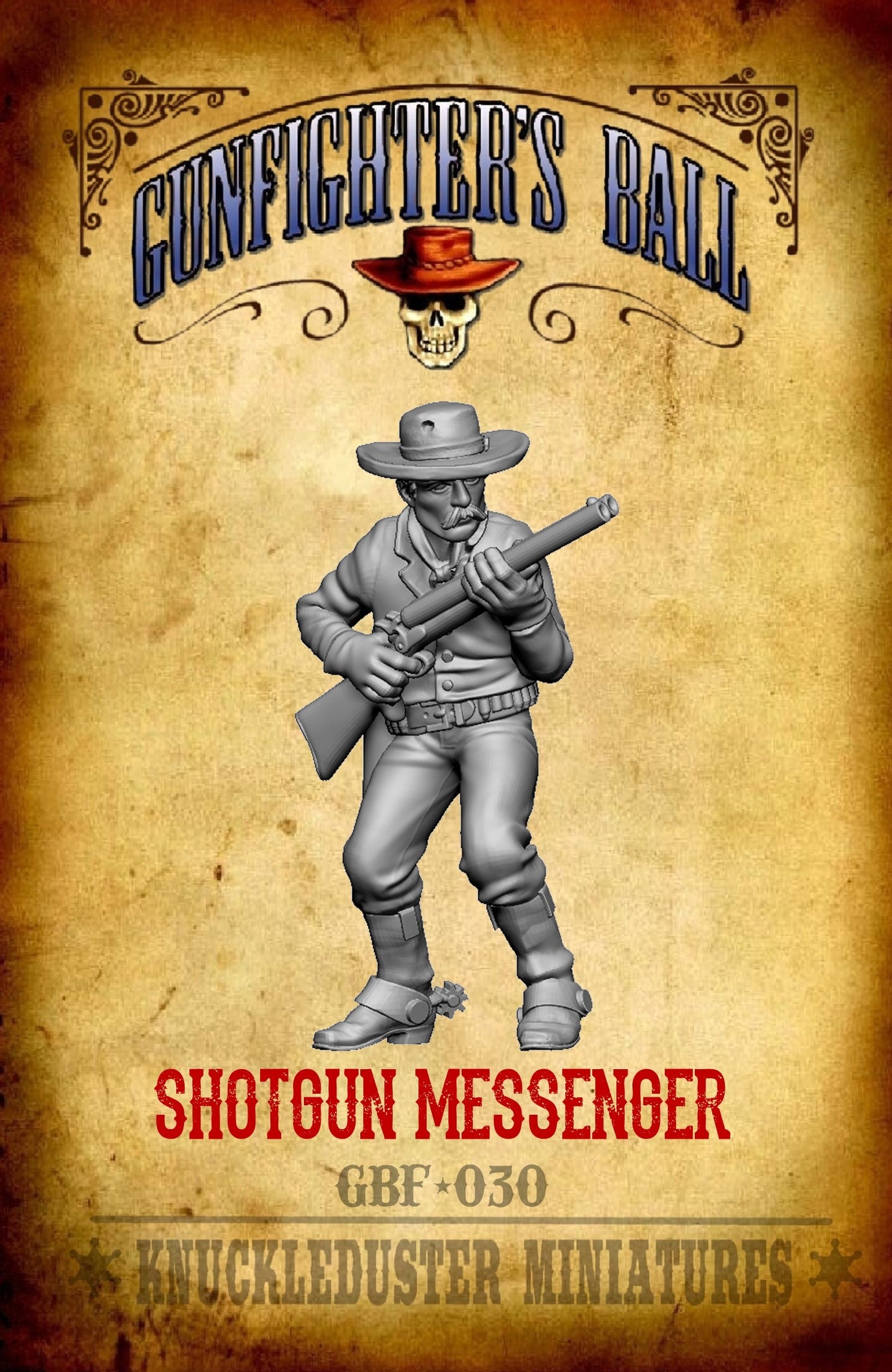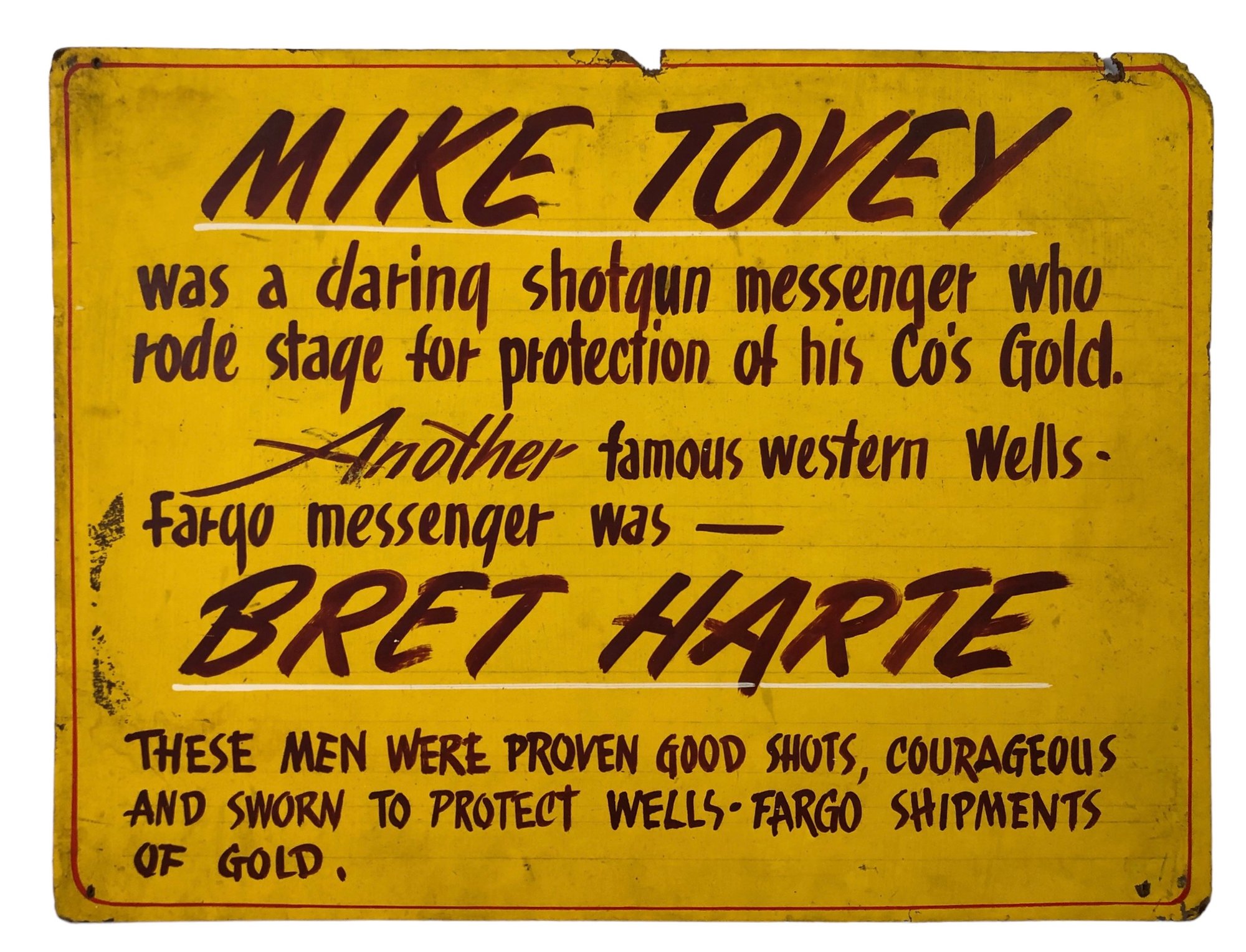
The Unsung Sentinels: Guardians of the Wild West’s Fortune
In the rugged tapestry of the American Old West, where fortunes were forged in gold dust and ambition, and law often took a backseat to the fastest gun, a solitary figure stood as a bulwark against the tide of lawlessness. Perched precariously atop a thundering stagecoach, a double-barreled shotgun across their lap, they were the shotgun messengers – the unsung sentinels who literally carried the weight of the burgeoning frontier economy on their shoulders. "We," as they might collectively attest, were the guardians of gold, the protectors of payrolls, and the human shield against the ubiquitous threat of the road agent.
This article delves into the perilous world of the shotgun messenger, exploring their vital role, the dangers they faced, the unique psychology required for such a profession, and their enduring legacy in American folklore.
The rise of the shotgun messenger was inextricably linked to the rapid expansion of the American West in the mid-19th century. The discovery of gold in California, the burgeoning cattle industry, and the need to transport currency, mail, and valuable goods across vast, untamed territories created an urgent demand for secure transportation. While railroads were slowly pushing westward, the stagecoach remained the primary artery for commerce and communication for decades. Companies like Wells Fargo & Co. and the Butterfield Overland Mail Line became synonymous with this era, and at the heart of their security operations was the shotgun messenger.

Their job description was deceptively simple: protect the cargo at all costs. But the reality was anything but. Every mile of the journey, from the sun-scorched plains of Texas to the snow-capped passes of the Rockies, was fraught with peril. Road agents, often organized gangs or desperate individuals, saw the stagecoach as a moving bank vault, and its contents as their ticket to a quick fortune. The messenger was the only thing standing between them and their prize.
The primary tool of their trade, and the source of their iconic title, was the "coach gun" – a short, double-barreled shotgun, typically 10- or 12-gauge. Its effectiveness lay in its devastating close-range power and the psychological deterrent it offered. A single blast from a scattergun could stop a horse or incapacitate multiple attackers, and its distinctive sound was often enough to give pause to even the most hardened outlaw. Messengers often carried other firearms as well, usually a revolver or two, but the shotgun was their signature weapon, symbolizing their readiness for a direct, brutal confrontation.
"Every mile was a gamble, every shadow a potential ambush," one can almost hear a grizzled messenger recounting. "You learned to read the dust, listen to the wind, and trust your gut more than anything else." Their vigilance was absolute. There was no room for complacency, no moment for a lapse in attention. They sat exposed, often on the driver’s box, their eyes scanning the horizon, their senses attuned to every whisper of danger. They were the first line of defense, and often, the last.
The dangers were manifold. Beyond the human element of bandits, there were the natural perils: treacherous mountain passes, swollen rivers, extreme weather, and the ever-present threat of Native American raids, though these became less frequent as the century progressed. A messenger had to be resourceful, not just a skilled marksman, but also a survivalist capable of enduring harsh conditions and adapting to unforeseen circumstances.
What kind of person volunteered for such a high-risk, often solitary profession? It took a unique blend of courage, resilience, and an almost fatalistic acceptance of danger. These were not typically the flamboyant gunslingers of legend, but rather men of quiet determination and unwavering loyalty to their employers. Many were veterans of the Civil War, accustomed to violence and hardship, who found a new purpose on the frontier. They were often paid well for the era, a testament to the value of their services and the risks involved, but money alone could not buy the nerves of steel required.
"You had to be ready to die for the cargo," a Wells Fargo messenger might have stated, "because if you weren’t, someone else would certainly try to make you." This wasn’t bravado; it was a fundamental truth of the job. Surrender was not an option, as it meant not only the loss of valuable property but often the lives of the driver and passengers as well. The messenger was the protector of all aboard.
Wells Fargo, in particular, built a formidable reputation for the security of its express services, largely due to the caliber of its messengers. They implemented strict protocols: messengers were typically assigned routes they knew intimately, they were well-armed, and they were trained to react decisively. Their reputation became a deterrent in itself. Outlaws knew that robbing a Wells Fargo stage was not a simple smash-and-grab; it was a direct confrontation with a highly motivated, well-armed professional.
One interesting aspect of their defense was the psychological warfare involved. The mere presence of a messenger, often identifiable by their stern demeanor and the prominent display of their shotgun, was intended to dissuade potential attackers. Their unwavering gaze and readiness to act were part of the unspoken message: "Don’t even think about it."

The job also demanded a certain level of detective work. Messengers sometimes had to be suspicious of passengers, watch for tell-tale signs of an ambush (such as fresh tracks or unusual quiet), and even identify known outlaws. They were, in essence, mobile law enforcement in areas where formal law was sparse or non-existent. Their reports after a robbery or an attempted one were crucial for tracking down culprits.
The heyday of the shotgun messenger lasted several decades, roughly from the 1850s to the 1890s. As the transcontinental railroad stretched its iron tendrils across the continent, it gradually supplanted the stagecoach as the primary means of long-distance transport for high-value goods. Trains offered greater speed, capacity, and, with the advent of armored cars, a higher degree of security. The era of the stagecoach, and with it the ubiquitous shotgun messenger, slowly faded into history.
Yet, their legacy endures, woven into the fabric of American mythology. The shotgun messenger became an iconic figure in dime novels, pulp fiction, and later, Hollywood Westerns. While often romanticized, these portrayals captured the essence of their courage and their pivotal role in taming the frontier. They represented the everyday heroism of individuals who, with little fanfare, risked their lives to maintain order and facilitate progress in a chaotic world.
"We were the embodiment of frontier justice, swift and uncompromising," one could imagine a messenger reflecting in their twilight years. "Not for glory, but for duty." They were not the sheriffs or the marshals, but they were a critical component of the informal, often brutal, system of law and order that allowed the West to develop. Their presence on those dusty, dangerous trails ensured that commerce could flow, that communication could happen, and that the dreams of a new nation could be transported, piece by precious piece, across a vast wilderness.
In conclusion, the shotgun messenger was far more than just an armed guard. They were a symbol of resilience, a testament to the human capacity for courage in the face of overwhelming odds. Their story is a reminder of the raw, untamed nature of the American frontier and the extraordinary individuals who shaped it. They rode into history with a scattergun in hand, leaving behind a legacy of unwavering duty and quiet heroism, forever etched into the lore of the Wild West. "We," the collective voice of the shotgun messengers, stood firm, and in doing so, helped build a nation.


